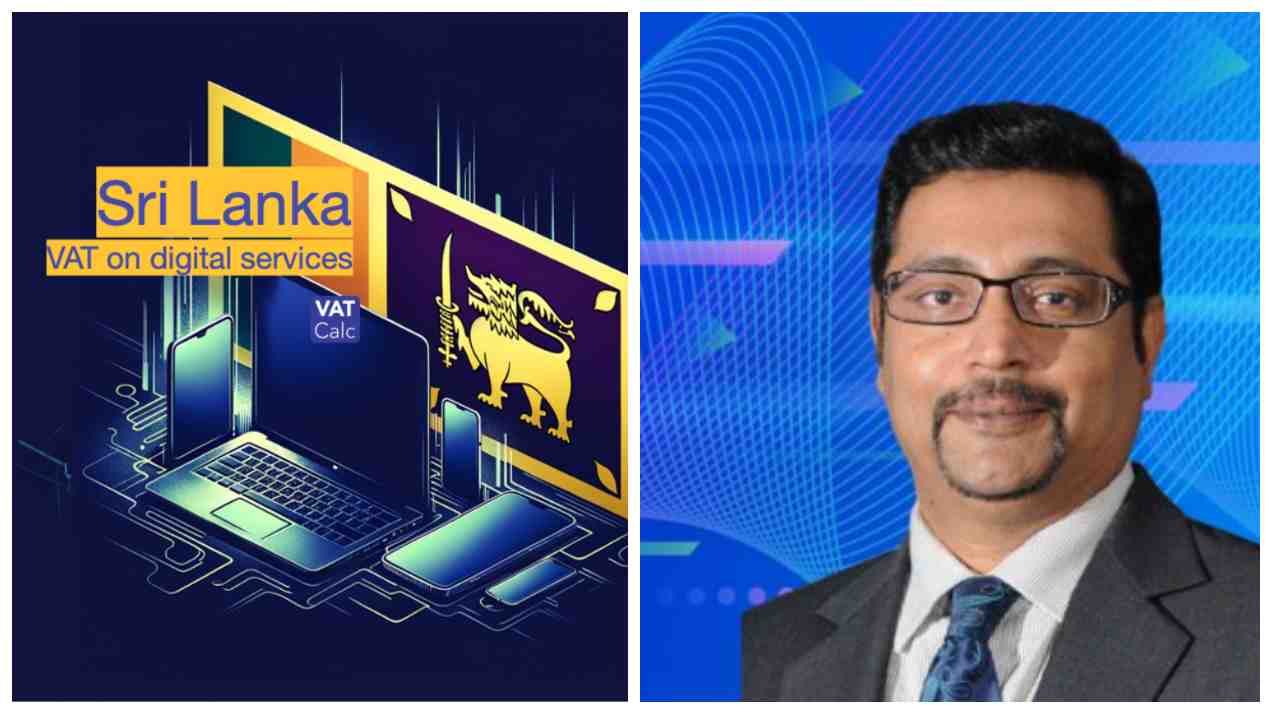
- New VAT Compliance Framework for Non-Resident Digital Service Providers in Sri Lanka – Effective October 1, 2025
The Inland Revenue Department of Sri Lanka has issued a landmark directive under the Value Added Tax (Amendment) Act, No. 04 of 2025, introducing a mandatory VAT regime for non-resident entities supplying digital services via electronic platforms to Sri Lankan consumers.
- BROADENING THE VAT BASE
By placing the onus on non-resident providers for B2C transactions, Sri Lanka aims to ensure that foreign digital services contribute to its tax base.
This move aligns Sri Lanka with global best practices in taxing the digital economy and attempt to ensure a level playing field for local and international service providers. However this covers only VAT and does not extend to income tax and social security contribution levy.
- TYPES OF DIGITAL SERVICES
The new regulations cast a wide net, defining “taxable supply” to include a comprehensive range of digital services. This goes beyond the usual suspects like cloud computing and SaaS, explicitly listing e-commerce services, digital marketing, streaming, FinTech, social media, on-demand platforms, gaming, and even blockchain/NFT platforms.
- RATE
A flat 18% VAT will be charged on these services. This simplifies compliance compared to multi-tiered rates but represents a notable cost for consumers or a margin hit for providers.
- REGISTRATION THRESHOLD
Non-resident providers must register for VAT if their services to Sri Lankan consumers exceed LKR 60 million (approx. US$ 195,000) in the last 12 months, or LKR 15 million (approx. US$ 49,000) in the last three months. While there’s a threshold, it’s relatively low for a country-specific digital services tax, potentially bringing many smaller providers into the tax net.
- PAYMENTS
Registered non-resident providers are responsible for collecting the VAT from consumers at the time of supply and remitting it to the Commissioner General of Inland Revenue by the 20th day of the month following the end of the taxable period (quarterly). As per the Gazette payments can be made in LKR or other approved currencies.
For payments made in foreign currencies, exchange rate fluctuations between the time of supply, collection, and remittance could introduce minor complexities for both the non-resident provider and the IRD.
- RETURNS
VAT returns must be filed electronically on a quarterly basis by the last day of the month after the taxable period ends, using the IRD’s e-service facility. This streamlines the process but requires providers to integrate with the Sri Lankan tax system.
- RECORD KEEPING
Records must be maintained for a minimum of five years, even if kept outside Sri Lanka, for audit and compliance purposes.
While practical for the providers, auditing these records across different jurisdictions can be resource-intensive for the IRD.
- NON COMPLIANCE
Non-compliance can lead to penalties for late payments, and the IRD reserves the right to enforce collection measures, including potential service restrictions or blacklisting in Sri Lanka for continuous non-compliance. This highlights the serious intent behind these regulations.
However, challenges might arise in enforcement, especially for smaller non-resident entities with no physical presence in Sri Lanka. The threat of “service restrictions or blacklisting” is a strong deterrent, but its practical implementation against truly global digital platforms remains to be seen. Enforcing this against truly non-cooperative global digital giants, especially those with no physical presence in Sri Lanka, can be extremely difficult. Sri Lanka lacks direct jurisdictional power over these foreign entities.
The system heavily relies on the voluntary compliance of non-resident entities, who must obtain a TIN and VAT registration via an e-service portal.
- DISPUTE RESOLUTION
In case of disputes over VAT calculation or compliance, the mechanisms for resolving issues with a non-resident entity lacking a physical presence could be challenging.
- CONSUMER IMPACT
The VAT of 18% will likely be passed on to Sri Lankan consumers, increasing the cost of digital services. This might lead to some consumer dissatisfaction or attempts to bypass official channels if possible.
- BILLING AND ACCOUNTING SYSTEMS
Non-resident providers will need to swiftly adapt their billing and accounting systems to comply with these new VAT obligations.
Suresh R I Perera is a distinguished Attorney-at-Law and Tax Principal at KPMG, with an extensive multidisciplinary background spanning taxation, law, accounting, and corporate governance
